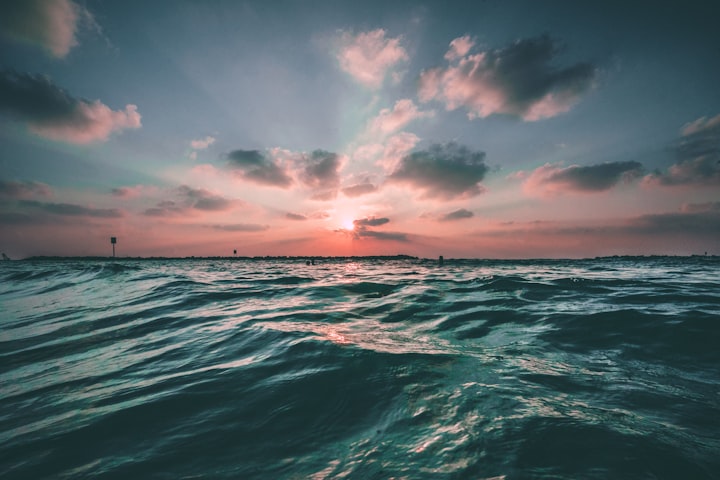"Exploring Seas of Wonder: Unveiling the Secrets and Significance of Our Earth's Aquatic Marvels"
From Ancient Trade Routes to Modern Discoveries: Journey through the Rich History and Unique Wonders of the World's Seas

Introduction:
The vast and majestic seas that cover our planet are not only a source of awe-inspiring beauty but also play a crucial role in sustaining life on Earth. Each sea holds its own distinct characteristics, teeming with diverse marine ecosystems and offering a multitude of experiences. In this article, we embark on a journey to explore the uniqueness of different seas across the globe, delving into their fascinating features, marine biodiversity, and the importance they hold for countries in terms of tourism, trade, and food security.
The Mediterranean Sea: A Gateway to History and Culture:
Nestled between Europe, Asia, and Africa, the Mediterranean Sea is a cradle of civilization and a hub of cultural exchange. Its azure waters bear witness to centuries of human history, with ancient cities and archaeological sites lining its shores. The Mediterranean is renowned for its rich biodiversity, boasting an abundance of marine life and serving as a popular destination for diving enthusiasts and beachgoers alike.
The Great Barrier Reef: Nature's Underwater Masterpiece:
Off the northeastern coast of Australia lies the world's largest coral reef system, the Great Barrier Reef. This natural wonder spans over 2,300 kilometers and is home to a breathtaking array of marine species. With its vibrant coral formations, colorful fish, and majestic sea turtles, the Great Barrier Reef attracts millions of visitors annually, offering unrivaled opportunities for snorkeling, diving, and eco-tourism.
The Arctic Ocean: A Pristine and Fragile Ecosystem:
Located at the northernmost part of the globe, the Arctic Ocean is a realm of ice and wonder. Its frozen landscapes are home to unique species such as polar bears, walruses, and seals, which have adapted to survive in this extreme environment. The Arctic Ocean plays a vital role in regulating the Earth's climate and acts as a barometer of global warming. The delicate balance of this ecosystem is threatened by the impacts of climate change, highlighting the urgent need for conservation efforts.
The Red Sea: A Jewel of Marine Biodiversity:
Stretching between Africa and the Arabian Peninsula, the Red Sea is renowned for its extraordinary marine biodiversity. Its warm waters are home to stunning coral reefs, colorful fish, and intriguing marine creatures. The Red Sea has become a popular destination for scuba diving and snorkeling, attracting enthusiasts from around the world who are mesmerized by its vibrant underwater landscapes.
The Caribbean Sea: Paradise of Tropical Beauty:
With its crystal-clear turquoise waters, palm-fringed beaches, and vibrant coral reefs, the Caribbean Sea is synonymous with paradise. This idyllic region encompasses a tapestry of islands, each offering its own unique charm and culture. The Caribbean Sea is not only a haven for tourists seeking relaxation and natural beauty but also a vital economic lifeline for many countries through tourism and marine-based industries.
The Sea as an Economic Lifeline:
For many countries, the presence of a sea or access to a coastline is a major advantage. Seas provide a myriad of benefits, particularly in terms of tourism, trade, and food security. Coastal regions draw millions of tourists each year, lured by the allure of sun, sand, and sea. From beach resorts and water sports to marine wildlife encounters, coastal tourism generates significant revenue and job opportunities for local communities.
Seas also serve as vital transportation routes, facilitating global trade and commerce. Ports and harbors enable the movement of goods and commodities, connecting countries and fueling economic growth. Moreover, seas provide a bountiful source of food, supporting the livelihoods of millions through fishing and aquaculture industries.
Conclusion:
The seas of our planet are not only fascinating natural wonders but also essential to our well-being and the sustainability of our planet. From the cultural and historical significance of the Mediterranean to the ecological marvels of the Great Barrier Reef and the fragile ecosystem of the Arctic Ocean, each sea holds a unique story and serves as a reminder of the profound interconnection between humans and the marine world. As stewards of the Earth, it is our responsibility to preserve and protect these precious seas for future generations to enjoy and cherish





Comments
There are no comments for this story
Be the first to respond and start the conversation.